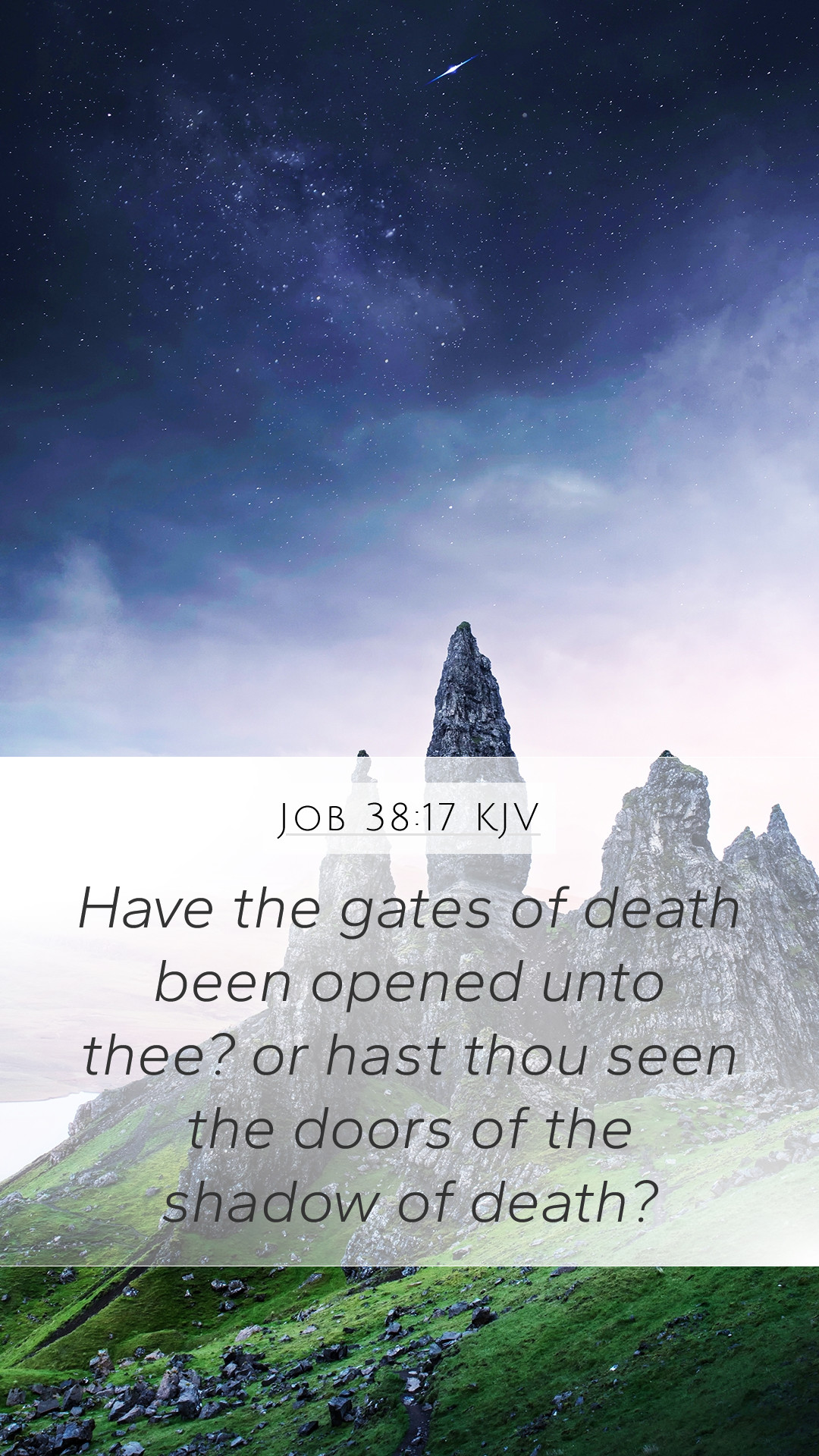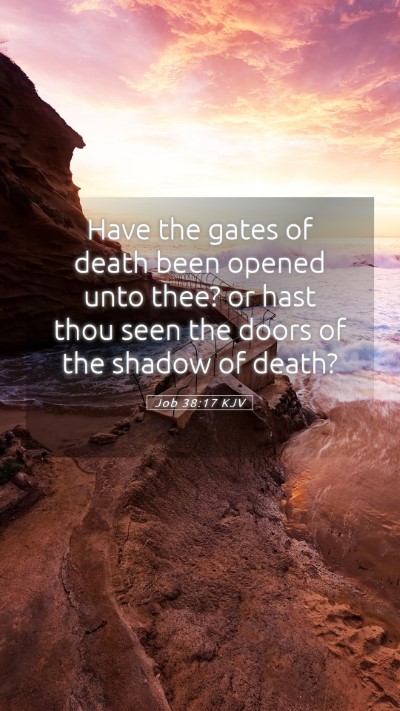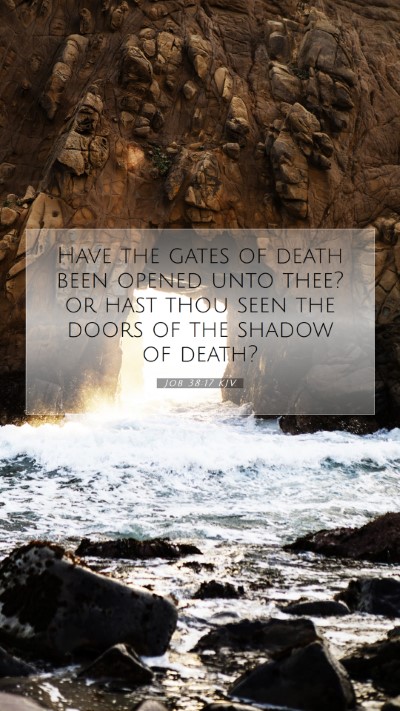Understanding Job 38:17 - A Comprehensive Commentary
This analysis delves into Job 38:17, exploring its profound meanings and interpretations drawn from the esteemed public domain commentaries of Matthew Henry, Albert Barnes, and Adam Clarke. The primary aim is to enhance our understanding of this verse through a rich compilation of insights, thereby providing valuable resources and tools for Bible study.
Verse Context and Content
Job 38:17 (KJV): “Have the gates of death been opened unto thee? or hast thou seen the doors of the shadow of death?”
Commentary Insights
-
Matthew Henry’s Commentary:
Matthew Henry asserts that this verse is part of God's profound response to Job amidst his sufferings. Here, God poses rhetorical questions to Job, emphasizing His sovereignty and the mysteries of life and death. The 'gates of death' symbolize the ultimate power and authority that belong to God alone, indicating that man has no true understanding of the afterlife or what lies beyond death.
-
Albert Barnes’ Commentary:
Albert Barnes highlights the rhetorical nature of the questions, suggesting they point to the incomprehensibility of God’s wisdom. By asking Job if he has accessed the 'gates of death', God implies that such knowledge is reserved for Him. This questions serves to remind Job of his limitations as a human being and the vastness of God's knowledge and control over the universe, including life and death.
-
Adam Clarke’s Commentary:
Adam Clarke emphasizes the poetic structure of the verse, indicating that it serves to illustrate the boundaries of human experience. Clarke interprets 'the shadow of death' as a metaphor for the unknown and the fear that surrounds mortality. The questions urge a reflection on human vulnerability and the divine power that governs all existence, including the mysteries of death.
Overall Analysis
The questions posed in Job 38:17 serve multiple purposes:
- Affirmation of Divine Sovereignty: The verse underscores God's supreme authority over life and death.
- Human Limitation: It accentuates the limitations of human knowledge and experience, calling Job to recognize his place in creation.
- Encouragement for Trust: By confronting Job with these profound mysteries, God encourages a trust in His divine plan despite human suffering and misunderstanding.
Applications and Lessons
Job 38:17 speaks to various applications for individuals seeking to deepen their understanding of Scripture:
- Contemplation of Mortality: Reflecting on this verse can remind believers of the transient nature of life and the hope found in faith.
- Encouraging Faith During Trials: In moments of doubt, remembering God's omnipotence can provide comfort and reassurance.
- Deepening Biblical Literacy: Engaging in deeper studies of such verses can enhance overall understanding and lead to richer faith experiences.
Related Bible Cross References
- Hebrews 2:14: Discusses Christ's victory over death and the assurance believers have in eternal life.
- Ecclesiastes 12:7: Speaks about the spirit returning to God who gave it, emphasizing the divine governance of life and death.
- Psalm 23:4: Reflects on walking through the 'valley of the shadow of death', affirming God's presence in times of fear and uncertainty.
Conclusion
In conclusion, Job 38:17 serves as a profound reminder of God's dominion over life and death. Through the rhetorical questions posed by God, we are led to a deeper biblical exegesis that emphasizes human limitations and the need for trust in God's ultimate wisdom. Engaging with this verse and its interpretations helps believers better understand Scripture and apply its significance to their lives.
For those involved in bible study groups or seeking online bible study resources, the discussions around Job 38:17 offer valuable bible study insights into understanding life’s complexities through a divine lens.


